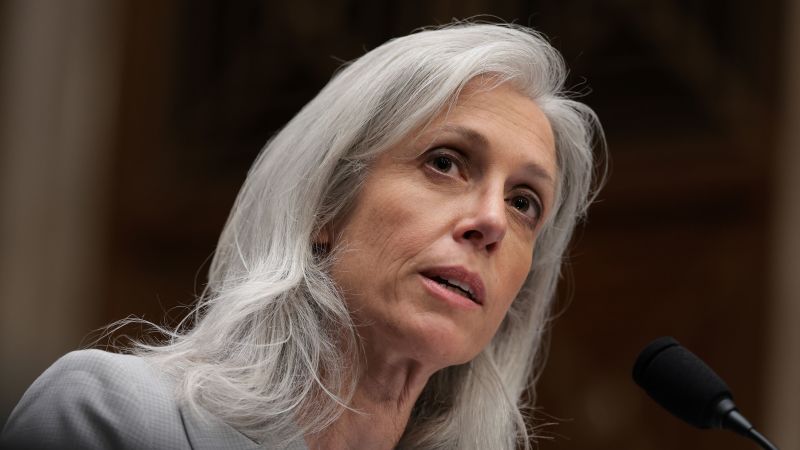On Thursday, Dr. Susan Monarez was officially sworn in as the new director of the U.S. Centers for Disease Control and Prevention (CDC). Her appointment comes at a critical juncture for the agency, which has faced unprecedented challenges and staffing cuts in recent years. With the CDC having lost nearly 25% of its workforce since January due to significant budget reductions proposed by the Trump administration, Monarez is stepping into a role that demands strong leadership and clear strategic vision.
The proposed budget for the fiscal year 2026 threatens to halve CDC’s funding, and plans for the agency’s re-organization could see key programs, including the National Center for Chronic Disease and Health Promotion, eliminated. Such drastic changes pose serious risks to the initiatives that address chronic diseases and promote public health across the nation. Compounding these challenges is the influence of U.S. Health and Human Services Secretary Robert F. Kennedy Jr., known for promoting vaccine misinformation, who has been accused of undermining the policies and communications traditionally upheld by federal health agencies. With the CDC grappling with the worst measles outbreak in thirty years, the urgency for effective public health messaging has never been clearer.
Dr. Monarez’s leadership style and decisions in her new position are under considerable scrutiny. Many at the CDC and the broader public health community are anticipating whether she will be a beacon of hope for the beleaguered agency or remain subservient to the bureaucratic pressures surrounding her. Morale among the staff remains low, as concerns about Monarez’s alignment with Kennedy’s controversial policies loom large. While her scientific credentials are respected, her appointment has raised questions about whether her leadership will effectively counter the ongoing challenges presented by misinformation and political interference.
Before her confirmation as CDC director, Monarez served as the principal deputy director and acting director of the agency. During those early weeks, she was notably quiet and did not engage extensively with staff. Some employees have expressed disappointment in her lack of visibility and connection with the workforce. Despite holding a Ph.D. in microbiology and immunology, she is the first CDC director without a clinical degree since the 1950s. This has led to further skepticism among staff, many of whom question how effective she can be without a strong public health or medical background.
During her confirmation hearings, Monarez articulated her personal journey—from being the daughter of a dairy farmer in rural Wisconsin to pursuing her graduate studies independently. She conveyed a lifelong commitment to public health, having led research initiatives targeting diseases with limited treatment options. Her professional trajectory spans both GOP and Democratic administrations, with prior leadership roles in various federal health organizations. While she emphasizes her dedication to modernizing public health efforts and reclaiming public trust, observers are cautious about her ability to challenge the status quo under the current administration.
Senators at her confirmation hearing pressed Monarez on her stance regarding vaccines and fluoride. Her responses affirming the health benefits of vaccines and the safety of fluoridated drinking water indicate her awareness of the scientific consensus, even amid politically charged discussions. These interactions highlight her attempts to distinguish herself from Kennedy’s ideology, which raises questions about potential future tensions within the administration.
Experts within the public health realm, such as Dr. Jennifer Nuzzo and former CDC acting director Dr. Richard Besser, have emphasized the importance of Monarez’s autonomy in leading the agency. They encourage her to leverage her scientific expertise to advocate for necessary resources and policies that protect public health across America. As Monarez embarks on her leadership journey, the commitment to addressing chronic disease, fighting misinformation, and enhancing public trust in the CDC will be critical for her success and the agency’s future direction.
Ultimately, the pressure on Dr. Monarez will be immense, and her capacity to lead effectively despite political overtones is yet to be determined. The public health community awaits her strategies to rebuild the CDC’s reputation and operational capabilities while navigating the political landscape that has so often hindered public health initiatives.












